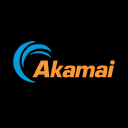Could Alibaba Acquire Akamai? Or Would It Better Be A Customer?
Here is a thought: Would Chinese e-commerce giant Alibaba (NYSE:BABA) consider acquiring Akamai (NASDAQ:AKAM) at some point? It may not be outrageous to think so, given that Alibaba has a knack for acquiring web related companies to expand its business. Considering Akamai’s dominance in content delivery and value-added services, Alibaba would benefit from access to host of web data and Akamai’s proprietary marketing and site acceleration services. Alibaba’s valuation and its recently raised cash give it enough financial muscle to attempt such an acquisition. Akamai is currently valued at less than $11 billion compared to Alibaba’s mammoth $220+ billion valuation. However, that’s one side of the story. Whether or not Akamai would be willing to concede to an acquisition offer is highly debatable. We believe that the likelihood of acquisition is low considering that Akamai has assets which have strategic value to the U.S. government. Indeed, the Department of Defense is a customer. Alibaba conceivably could target Akamai’s non-US business, though this too is unlikely as Akamai’s thousands of servers are networked into a huge and robust discrete and software-intensive architecture that is deployed worldwide.
See our complete analysis for Akamai here
- Akamai Stock Has Seen Little Change Since 2021. Will A Q3 Earnings Beat Drive The Stock Higher?
- What To Expect From Akamai’s Q2 Earnings?
- Cloud Business In Focus As Akamai Reports Q1 Results
- Will Akamai’s Cloud Computing Push Pay Off?
- Up Almost 6% Last Month, Can Akamai Continue Its Run?
- Here’s Why Akamai Stock Has Failed To Outperform The S&P Since 2017
How Akamai’s Business Fits In Alibaba’s Strategy?
If not an acquisition candidate, then, Akamai seems sure to be a strong potential service provider. Akamai is involved in offering content delivery services and value-added services such as security solutions and site acceleration. In contrast, Alibaba operates a marketplaces business model wherein it provides an online platform to enable transactions between merchants and buyers. However, it is in Alibaba’s interest if the Internet transactions increase and become more secure and fast. This is where Akamai can help, offering Alibaba highly secure, high performance infrastructure and services to further optimize user experience on its marketplaces. Also, it can leverage Akamai’s value-added services to attract more merchants on its platform, which in turn will create a virtuous cycle by attracting more buyers and generating higher GMV (gross merchandise volume). Akamai’s presence in the U.S. can help Alibaba expand in one of its key international markets as well.
Akamai Is Not Overvalued, And Thus The Current Price Is Reasonable
Our price estimate for Akamai stands at $61, implying a premium of less than 5% to the market price. This is despite the fact that Akamai is doing immensely well on all fronts. Therefore, we believe that the market pricing is, if not cheap, at an optimum value which may interest Alibaba at some point, however unlikely a transaction is. Let’s take a look at Akamai’s recent performance.
Among the various value-added solutions that Akamai sells, security products are seeing the fastest growth. In first quarter of 2014, security revenues grew 26% over the same period last year and 3% sequentially. These figures jumped to 30% and 10%, respectively, in the second quarter, owing to the impact of the Prolexic acquisition. The move should help bolster Akamai’s sales going forward, as it integrates the acquired technology into its flagship Kona Site Defender and leverages the combined user base to upsell solutions. Before Prolexic, Akamai had 867 customers using its security solutions with around 260 on Kona. Prolexic increased that user base by almost 50% to 1,250.
Furthermore, user demand for high quality content driven by new formats such as 4K and ultra-HD, which require higher bit rates than normal, means that bandwidth requirements are likely to increase significantly in the coming years. With the adoption of 4G LTE rising in developed markets and carriers in emerging markets looking to transition to the standard, mobile data usage is also set to surge. According to a recent Cisco VNI report, mobile data traffic grew 81% in 2013 and is expected to grow at a CAGR of over 60% over the next five years. [1] Akamai, which delivers 15-30% of all web traffic, stands to benefit hugely from this huge surge in online traffic.
However, There Are Some Big Concerns That Could Make The Acquisition Unlikely
Akamai’s business has several strategic aspects to it, as far as the U.S. government is concerned. First, several U.S. government agencies are Akamai’s customers and use its content delivery and value added services. At the end of 2013, Akamai’s public sector customers included the Federal Aviation Administration, the Federal Emergency Management Agency, the U.S. Air Force, the U.S. Census Bureau, the U.S. Department of Labor, the U.S. Postal Service and even (as noted above) the U.S. Department of Defense. Considering that Akamai is also serving the U.S. defense and military agencies, it is highly unlikely that the U.S. government will allow a Chinese company to get its hands on it. Second, Akamai also offers security solutions to countless U.S. customers and it is highly likely that these customers will express their concerns to any adjudicator of a deal were Alibaba in tact to make an acquisition offer.
Akamai does have business in China, but the Internet is highly regulated in the country thus curbing some freedom of expression. If Alibaba acquires Akamai then Chinese government could influence Alibaba’s management to leverage Akamai’s technical expertise to further create security blocks to the censor content. We believe that this will not be congruent with Akamai’s philosophy and its organizational culture.
View Interactive Institutional Research (Powered by Trefis):
Global Large Cap | U.S. Mid & Small Cap | European Large & Mid Cap
More Trefis Research
- Global Mobile Data Traffic Forecast Update, 2013–2018, Cisco, February 5th, 2014 [↩]
